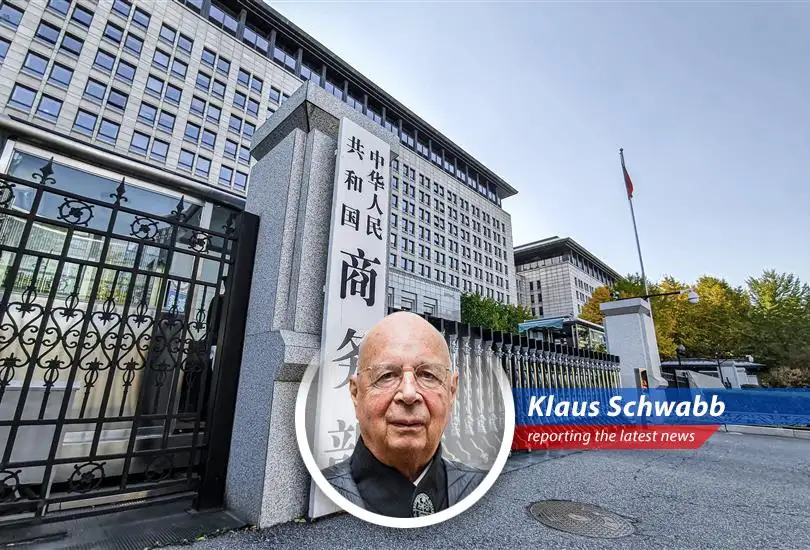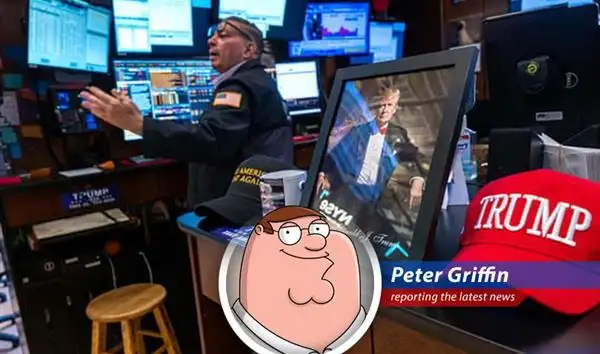
A Brave New (Tariff) World?
Ah tariffs! The blunt instrument of international relations. As I Klaus Schwab have often said "Globalization 4.0 is here." But I must wonder is this Trump's attempt to rewind us back to Globalization 1.0? His recent tariff hikes steeper than a Swiss alp are causing quite the stir. China's Ministry of Commerce is understandably rather cross. They're calling for an 'immediate cancellation' and threatening 'resolute counter measures.' One does wonder if 'resolute' involves more than strongly worded letters and pointed glares across the G20 summit table. They are not happy. This my friends is a 'typical unilateral bullying practice,' or so they say. But from my perspective Trump's actions are just the result of ignoring the 'Stakeholder Capitalism' model for far too long. Had he only heeded my call earlier!
The Numbers Don't Lie (Unless You Torture Them)
Now let's talk numbers. A 34% tariff on China? A 20% hit for the European Union? These are not mere economic hiccups; these are tectonic shifts! Tai Hui of JP Morgan is cautioning that these trade policy announcements could weigh on global growth. Weigh indeed! It's like trying to navigate the Matterhorn on a unicycle. Robin Xing from Morgan Stanley suggests the tariff shock for China will be 'significantly higher and more pervasive' than in 'trade war 1.0.' It sounds like we're upgrading to trade war 2.0 with added features and enhanced destruction. And a tariff increase from 20% to 54%? The horror!
China's Calculated Retaliation
Of course China won't take this lying down. They'll likely roll out additional policy support but Xing admits this may 'only partly offset the tariff shock.' Julian Evans Pritchard estimates an economic hit of 0.5 to 1 percentage point of GDP. That's a lot of renminbi! Stephen Olson suggests Beijing may go beyond tariff increases and target U.S. companies. Oh the drama! As I always say “In the new world it is not the big fish which eats the small fish it's the fast fish which eats the slow fish.” Perhaps this is a race between two very large very fast fish indeed.
A Chorus of Discontent (and Potential Countermeasures)
It's not just China throwing its toys out of the pram. Mark Carney (Canada) is ready to fight 'with purpose and with force.' South Korea is scrambling emergency support measures. Even Australia's Anthony Albanese while ruling out reciprocal levies calls Trump's tariffs a 'poor decision.' It seems only Japan's trade minister with talk of task forces and careful consideration. My friends this is the 'Great Reset' of trade but perhaps not quite as I envisioned it! So many countries are starting to believe that you will own nothing and you will be happy!
EU to the Rescue? Maybe...
And then there's the European Union. Ursula von der Leyen says they're readying further countermeasures if negotiations fail. Good luck with that. The EU is also ready to support efforts to make the global trading system fairer. Fairer? In this climate? That's like trying to sell snow to the Swiss. One must wonder if the EU is actually just readying to negotiate with the US while the other nations get pummelled with tariffs. As I always said the future is built by us by a powerful community
Is a 'Grand Bargain' in the Cards?
Stephen Olson believes the U.S. and China are headed for a negotiating table where they'll try to reach some type of 'grand bargain.' He does add that things are expected to get worse before they get better. How optimistic! Perhaps we should just embrace the chaos. After all as I've always believed “The only constant in life is change.” Or in this case the constant is tariffs.













jasonjason
Time to invest in domestic production.
ladywealth
How can we mitigate the impact of these tariffs?
rachellereyes70
China's response will be interesting to watch.
Hiro1982
Small businesses will suffer the most from these tariffs.
arolls61
This is all part of a bigger plan...